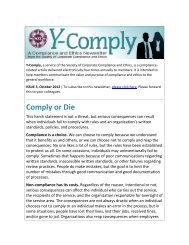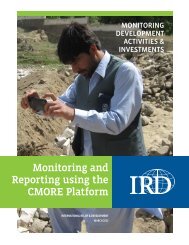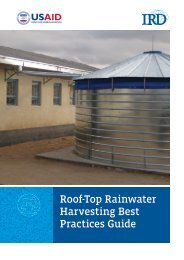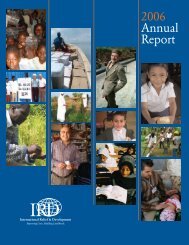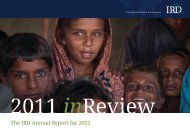Empowering citizens Engaging governments Rebuilding communities
Empowering citizens Engaging governments Rebuilding communities
Empowering citizens Engaging governments Rebuilding communities
You also want an ePaper? Increase the reach of your titles
YUMPU automatically turns print PDFs into web optimized ePapers that Google loves.
“<br />
Through ICAP, community groups have<br />
become a bellwether of democratic participation,<br />
giving everyday <strong>citizens</strong> an outlet to identify<br />
needs and the means to address them”<br />
—Ernest Leonardo<br />
CSP’s operational design incorporated many elements<br />
of ICAP, but, as a straight stabilization mission, it<br />
was fundamentally different. It was shaped by the<br />
near total collapse of Iraq’s internal political and<br />
social infrastructure and the ensuing breakdown in<br />
Box 3<br />
The evolution of ICAP, USAID’s longest-running program in Iraq (continued)<br />
security—the same elements that threatened ICAP<br />
and other relief and development programs. But unlike<br />
traditional relief programs, normally divided among a<br />
group of implementers, CSP was given only to IRD to<br />
manage and run.<br />
The community action groups, which remain at the core of the ICAP design, were able to change because the overall<br />
program mission changed. In the early days, with <strong>communities</strong> facing a critical lack of basic services, ICAP focused<br />
on quick-impact projects designed to stave off a range of impending crises, from outbreaks of cholera to widespread<br />
truancy. Thanks to the continuing dedication of group members, the CAGs moved from stop-gap measures and toward<br />
the kind of robust, participatory planning processes that create sustainable bonds between <strong>citizens</strong> and their leaders.<br />
1<br />
Building community trust<br />
By the end of 2011, all community action groups had completed comprehensive community action plans to inform<br />
long-term district development strategies for Baghdad’s 15 governmental districts. At week-long planning workshops,<br />
under IRD’s guidance, group members worked with government officials at the neighborhood, district, and<br />
province levels to outline long-term, districtwide strategies for improving basic services and livelihoods, especially<br />
for women, youths, and the internally displaced. By the end of its program date, ICAP was expected to shepherd<br />
more than 600 projects identified in the official action plans through completion.<br />
ICAP’s broader agenda not only sharpened the mission of community groups, it fostered more diverse program successes,<br />
including better assistance outreach for Baghdad’s internally displaced population, and enhanced measures<br />
to reach the estimated 5 million Iraqis who had Internet access by mid-2011. IRD worked with all 15 district<br />
councils to build dynamic websites featuring useful information on government services and contact details and<br />
spearheaded technology and skills training for information technology specialists from each council. And as part of<br />
a very inventive and groundbreaking “donor marketplace,” representatives from more than 20 international funding<br />
agencies—including the UN, the International Organization for Migration, the US Institute for Peace, and groups<br />
from Japan, the Republic of Korea, and northern Europe—gathered with community action group members to discuss<br />
funding priorities and local community needs. The ICAP-sponsored event was the first time donors had the opportunity<br />
to engage directly with community leaders around a locally owned plan for social and economic development.<br />
“Through ICAP, community groups have become a bellwether of democratic participation, giving everyday <strong>citizens</strong> an<br />
outlet to identify needs and the means to address them,” said Leonardo. “Their efforts, despite violence and limited<br />
resources, have helped make responsive, bottom-up planning a respected and acceptable practice in Baghdad.”<br />
21


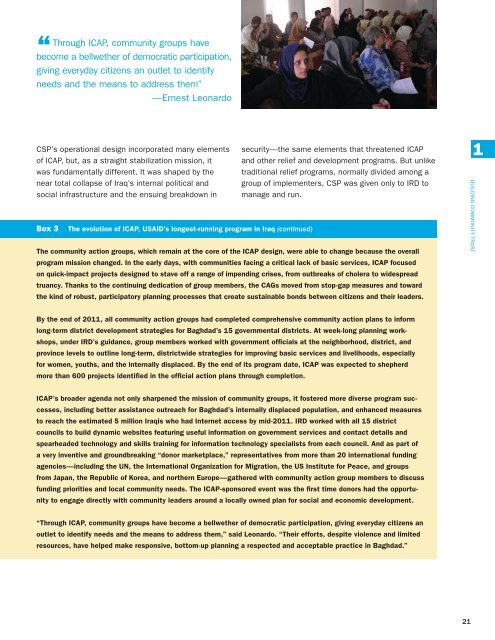
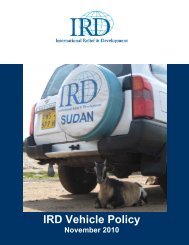
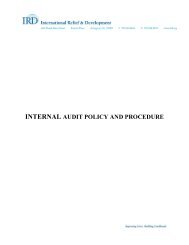
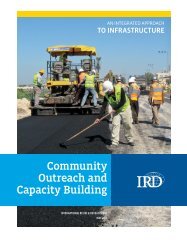
![Guide bonne pratique production d'oignon qualité_VF_4_2411012[1]](https://img.yumpu.com/23506639/1/184x260/guide-bonne-pratique-production-doignon-qualitac-vf-4-24110121.jpg?quality=85)

